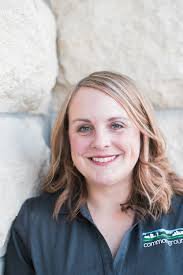As in life, sometimes things don’t go as planned on the farm. A prime example is when my husband and 6-year-old son recently brought home an orphaned heifer from a family friend’s herd. The calf was just a few hours old when she moved into our barn and started receiving care. It was during one of the bitter-cold weeks when farmers were working around the clock to ensure – to the best of their abilities – the health and safety of their animals. The mother didn’t make it, and without stepping in, the calf would not have survived either.
When the calf was in the barn, the boys immediately fed her, and put a heat lamp on her. Over the next few days my son, husband and I taught that calf how to drink from a bottle.
It wasn’t easy. It was cold. It required putting on extra layers and leaving the comforts of our home to trudge to the barn in the dark at times. It required waking up earlier or stepping away from a favorite cartoon or waiting to eat a meal. It required patience and strength while the calf was held and slowly, but surely, learned how to get its milk. During this time the calf was not the only one learning.
At first, my son was quite apprehensive about holding the bottle while a squirmy, hungry calf made her best efforts to fill her belly. Besides, holding four pints of milk replacer in a large bottle can be tough for a kindergartener.
Soon the calf figured out how to nurse, and my son became comfortable with feeding.
We’re at the point now that our son can take the bottle out to the barn before he leaves for school in the morning and when he gets home at night. He feeds his calf without our help. Yes, we still assist him on occasion, but our kindergartner is the one making sure the calf is fed and cared for every day. (My husband and I keep a watchful eye on him from a distance.)
When I mentioned my son’s chores and newly assigned responsibilities to a coworker recently, the response I received was, “Wow! That’s a lot for a little boy his age.”
I thought about that comment for perhaps a little too long and began to question whether our expectations of our son are set too high. In the end, I came to the same conclusion I’m sure my parents and my husband’s parents came to when we were children: it’s an appropriate age, especially for our child.
Lady Bird Johnson once said “children are apt to live up to what you believe of them.”
My son is capable of this responsibility because I know he can do it.
Even though the initial days with that little calf were trying, and tears were shed, and the “I can’t do it” statements were made, and the feedings took an extremely long time to complete, my husband and I assured our son that he was capable of handling this situation.
My husband and I are setting the stage for our son to experience grit, determination, hard work and the ability to persevere. And while living on a farm requires all of the above plus more, life in general does as well. We’re doing our part to prepare our son to face and respond to challenges in the future.
While a lot of things don’t go as planned for us on the farm, one thing will remain a constant: our children will be accountable and held responsible for tasks on our farm – even if they seem daunting for a child – because we believe our children can and will meet the expectations set for them. I have found when things don’t go as planned, we too learn new ways of doing things and find out what is possible to accomplish within the farm and within ourselves. Our son is finding this out with his calf.
Chores that once seemed daunting are now fun, he has a sense of purpose and an understanding that his calf depends on him for its wellbeing. The lessons learned in the barn on these cold mornings before school will be ones we as parents feel will help him succeed in school and life, whether he chooses to follow us on the farm or make his own path in the world.
Insight is a weekly column published by Kansas Farm Bureau, the state’s largest farm organization whose mission is to strengthen agriculture and the lives of Kansans through advocacy, education and service. Kim Baldwin is a McPherson County farmer. Email kfb@kfb.org.





